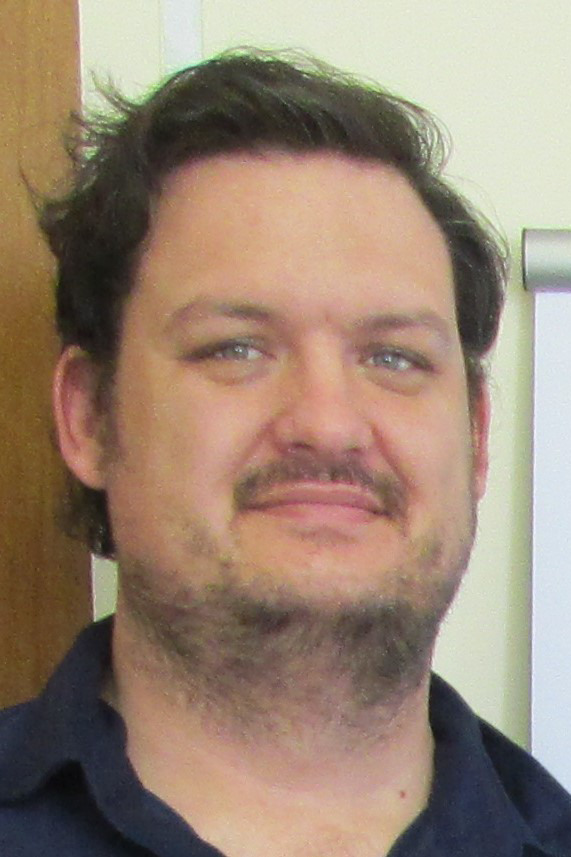Pre-conference
Pre-conference #1: The Science and Use of Memory – A Real World Approach
Julie Kable, PhD, Associate Professor, Department of Psychiatry and Behavioural Sciences and Pediatrics, School of Medicine, Emory University, Atlanta, GA, USA
Jacqueline Pei, PhD, R Psych, Professor, Department of Educational Psychology; Assistant Clinical Professor, Department of Pediatrics, University of Alberta, Edmonton, AB
Pre-conference #2: Still Fighting for a Future
Mary Anne Bunkowsky, Parents/Family Member, Family Advisory Committee, Berlingotn, ON
Ken Edwards, Parents/Family Member, Family Advisory Committee, Moncton, NB
Kelly Harding, PhD, Research Associate, CanFASD Research Network; Professor, Department of Psychology, Laurentian University, Sudbury, ON
Shana Mohr, Parents/Family Member, Family Advisory Committee, Saskatoon, SK
Marsha Wilson, Parents/Family Member, Family Advisory Committee, Langley, BC
Main Conference
Exploring Health Outcomes in Adults with FASD
Evidence from the Atlanta and Seattle Research Study Sites

Claire D. Coles
PhD, Professor, Department of Psychiatry and Behavioral Sciences; Director, Maternal Substance Abuse and Child Development Program (MSACD), Emory University, Atlanta, GA, USA
Claire D. Coles, PhD is Professor of Psychiatry and Pediatrics at Emory University School of Medicine, and Director of the Center for Maternal Substance Abuse and Child Development. Dr. Coles is the principal investigator of the CIFASD “FASD in Adults: Health and Behavior” Research Study being carried out in Atlanta and Seattle.

Therese Grant
PhD, Professor and Ann Streissguth Endowed Professor in Fetal Alcohol Spectrum Disorders, Department of Psychiatry and Behavioral Sciences, University of Washington, Seattle, WA, USA
Therese Grant is an epidemiologist and Professor of Psychiatry and Behavioral Sciences at the University of Washington School of Medicine, where she holds the Ann Streissguth Endowed Professorship in Fetal Alcohol Spectrum Disorders. Dr. Grant has contributed to research on FASD screening methods and intervention, as well as policy development. She developed the Parent‐Child Assistance Program, a case management model for preventing alcohol and drug exposed births, now operating at numerous sites in North America.
Evidence from the Vancouver Research Study Site

Charlis Raineki
PhD, Research Associate, Department of Cellular and Physiological Sciences, University of British Columbia, Vancouver, BC
Dr. Raineki is a Research Associate working with Dr. Joanne Weinberg in the Department of Cellular and Physiological Sciences at the University of British Columbia. His research utilizes a translational approach to examine the relationship between prenatal alcohol exposure and increased predisposition for the development of physical and mental health problems. Dr. Raineki’s research also focuses on the independent and interactive effects of prenatal alcohol exposure and early-life adversity on the development of psychopathologies and neuroimmune function.
The Potential for Severe Cerebrovascular Outcomes in Adulthood Due to Prenatal Alcohol

Farida Sohrabji
PhD, FAHA, Professor; Interim Department Head; Presidential Impact Fellow, Department of Neuroscience and Experimental Therapeutics, Texas A&M University, Director, Women’s Health in Neuroscience Program, Bryan, TX, USA
Farida Sohrabji is Regents Professor and Interim Department Head of Neuroscience and Experimental Therapeutics at Texas A&M University College of Medicine. She is also the Shelton Professor of Neuroscience. She obtained a joint doctoral degree in Neurobiology & Biopsychology from the University of Rochester, Rochester, NY, and completed her post-doctoral training at Columbia University, New York. She joined the faculty of Texas A&M College of Medicine in 1998.
Dr. Sohrabji directs a federally-funded research program that focuses on sex and age differences in stroke and Alzheimer’s disease. She is a Fellow of the American Heart Association (Stroke Council) and a member of the inaugural class of Texas A&M Presidential Impact Fellows. Dr. Sohrabji is actively involved in the training of graduate and medical students and mentorship of junior faculty. She is the founder and Director of the Women’s Health in Neuroscience Program at the Texas A&M College of Medicine, and a strong advocate for the inclusion of gender/sex differences in biomedical research.
Preliminary Results on the Study of the Cardiovascular Risk in Adults with a History of Prenatal Alcohol Exposure

Julie Kable
PhD, Associate Professor, Department of Psychiatry and Behavioural Sciences and Pediatrics, School of Medicine, Emory University, Atlanta, GA, USA
Dr. Kable is an Associate Professor in the Department of Psychiatry and Behavioral Sciences who has over 25 years of experience studying the impact of prenatal alcohol exposure and working with children with FASDs and their families. She has been instrumental in developing innovative interventions, including improving self-regulation, math and adaptive skills. She has been the President of the FASDSG and served on many panels as an expert on the care of individuals with FASDs.
Framework for Housing Individuals with FASD: Experiences and Resources

Jacqueline Pei
RPsych, PhD, Professor, Department of Educational Psychology; Assistant Clinical Professor, Department of Pediatrics, University of Alberta, Edmonton, AB
Jacqueline Pei is a Professor in the Department of Educational Psychology and Assistant Clinical Professor in the Department of Pediatrics at the University of Alberta, and a cofounder of the Alberta Clinical and Community-based Evaluation Research Team (ACCERT). Also a practicing Registered Psychologist, she teaches, supervises graduate students, and conducts research on interventions for individuals with FASD. Dr Pei is currently the Senior Research Lead for the Canada FASD Research Network.
Life Experience of Individuals with FASD in a Rural South African Context

Leana Olivier
PhD, Chief Executive Officer, Foundation for Alcohol Related Research (FARR), Cape Town, South Africa
Dr Leana Olivier has post graduate qualifications in nursing, psychology and organizational development and has worked in the public and private sectors, before joining the Foundation for Alcohol Related Research (FARR) in 2006 as the CEO. She holds a PhD in Health and Social Sciences. FARR’s main focus areas are FASD Research, Awareness, Prevention through community projects and Training. FARR has 13 research and community projects in 4 provinces and 58 staff members.

Jaco Louw
MA, BA(Hons), Project Manager, Foundation for Alcohol Related Research (FARR), Cape Town, South Africa
Mr. Louw has been with FARR (Foundation for Alcohol Related Research) since 2013 and has overseen two comprehensive FASD research, awareness and prevention projects in two large districts. Mr. Louw is involved in managing FASD research projects, overseeing and monitoring the design, implementation and write-up of various studies on FASD. As of 2019 Mr. Louw has been enrolled at Stellenbosch University working on a PhD in psychology.
The Changing World of Epigenetics: Experience is Written in Our Genes, But Does It Have to Stay There?

Facilitator: Joanne Weinberg
Professor and Distinguished University Scholar, Emerita, Department of Cellular and Physiological Sciences, University of British Columbia, Vancouver, BC
Dr. Joanne Weinberg is Professor Emerita, in the Department of Cellular and Physiological Sciences at the University of British Columbia. She has associate appointments in the Department of Psychology, the Center for Brain Health, and BC Children’s Hospital Research Institute. Dr. Weinberg’s research has utilized animal models to investigate effects of prenatal alcohol exposure and early life stress or adversity on brain and biological development. As part of the Collaborative Initiative on FASD (CIFASD) she is currently extending this research to cohorts of pregnant women and children from infancy to adulthood to investigate immune function, health, and behavioral and adaptive outcomes.
Behavioral and Epigenetic Consequences of Developmental Adversity and Intervention

Tania Roth
PhD, Chair, Associate Professor, Department of Psychological and Brain Sciences, University of Delware, Newark, DE, USA
Dr. Tania Roth is an Associate Professor and Chair of Psychological and Brain Sciences at the University of Delaware, where her research program is focused on defining epigenetic mechanisms responsible for environmental influences on gene activity, development of behavior, and psychiatric disorder. She is currently funded by the National Institute of Child Health and Development and National Science Foundation. Dr. Roth has received numerous honors and awards for scholarship, including the 2010 Ziskind-Somerfeld award from the Society of Biological Psychiatry for stimulating further research in the field, was elected a Kavli Fellow of the National Academy of Sciences in 2012, and received an Early Career Impact Award from the Federation of Associations in Behavioral & Brain Sciences in 2015. She is currently an Associate Editor (Learning, Memory, Genetics, and Epigenetics) of Developmental Psychobiology, and serves on the Editorial Review Boards for Environmental Epigenetics and Development and Psychopathology. She received her Bachelor’s degree in Biology from Roanoke College and her PhD in Zoology from The University of Oklahoma.
Early Life Experience and Developmental Vulnerability: Adversity, Outcomes and Intervention

James Reynolds
PhD, Chief Scientific Officer, Kids Brain Health Network; Professor, Department of Biomedical and Molecular Sciences, Queen’s University, Kingston, ON
The major focus of Dr. Reynolds’ research is on the effects of prenatal alcohol exposure on the developing brain and the resulting cognitive, behavioural and socio-emotional deficits that may occur in children. Dr. Reynolds has been the Principal Investigator for numerous grants awarded by the Canadian Institutes of Health Research for both basic and clinical studies on FASD. Dr. Reynolds’ lab was the first to publish the results of studies describing deficits in saccadic eye movement control in children with FASD, and this continues to be a major focus of the research program. Dr. Reynolds is the Program Lead for the FASD Research Program in the Kids Brain Health Network, a national Network of Centres of Excellence dedicated to the study of neurodevelopmental disorders in children, and he also serves as the Chief Scientific Officer for the Network.
FASD – A Rights Perspective Versus Best Interest

Peter W. Choate
PhD, RCSW, Professor, Social Work, Mount Royal University, Calgary, AB
Peter Choate holds a PhD in Addictions and a PhD in Child Protection and a Master of Social Work. He is an Associate Professor of Social Work at Mount Royal University. His research interests include child protection practice with a particular emphasis on child and adolescent mental health, including FASD as well as maltreatment, neglect and abuse (physical, sexual, emotional) and these issues within family systems.

Terri Pelton
BSW, RSW, Executive Director, Child and Youth Advocate of Alberta, Calgary, AB
Terri Pelton is the Executive Director of Advocacy Services with the Office of the Child and Youth Advocate in Alberta. She is a registered social worker, graduating from the University of Regina with her Bachelor of Social Work degree in 1987. She has worked in the area of child welfare for over 30 years as a frontline child welfare worker, supervisor and policy analyst prior to joining the Advocate’s Office in 2007. Terri is passionate about her belief that young people are rights holders and that their voices need to be heard in decisions that affect them.